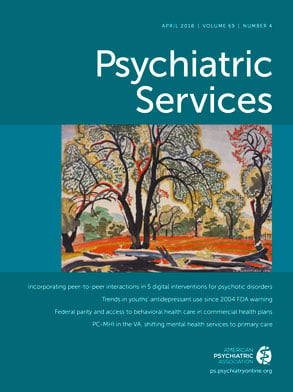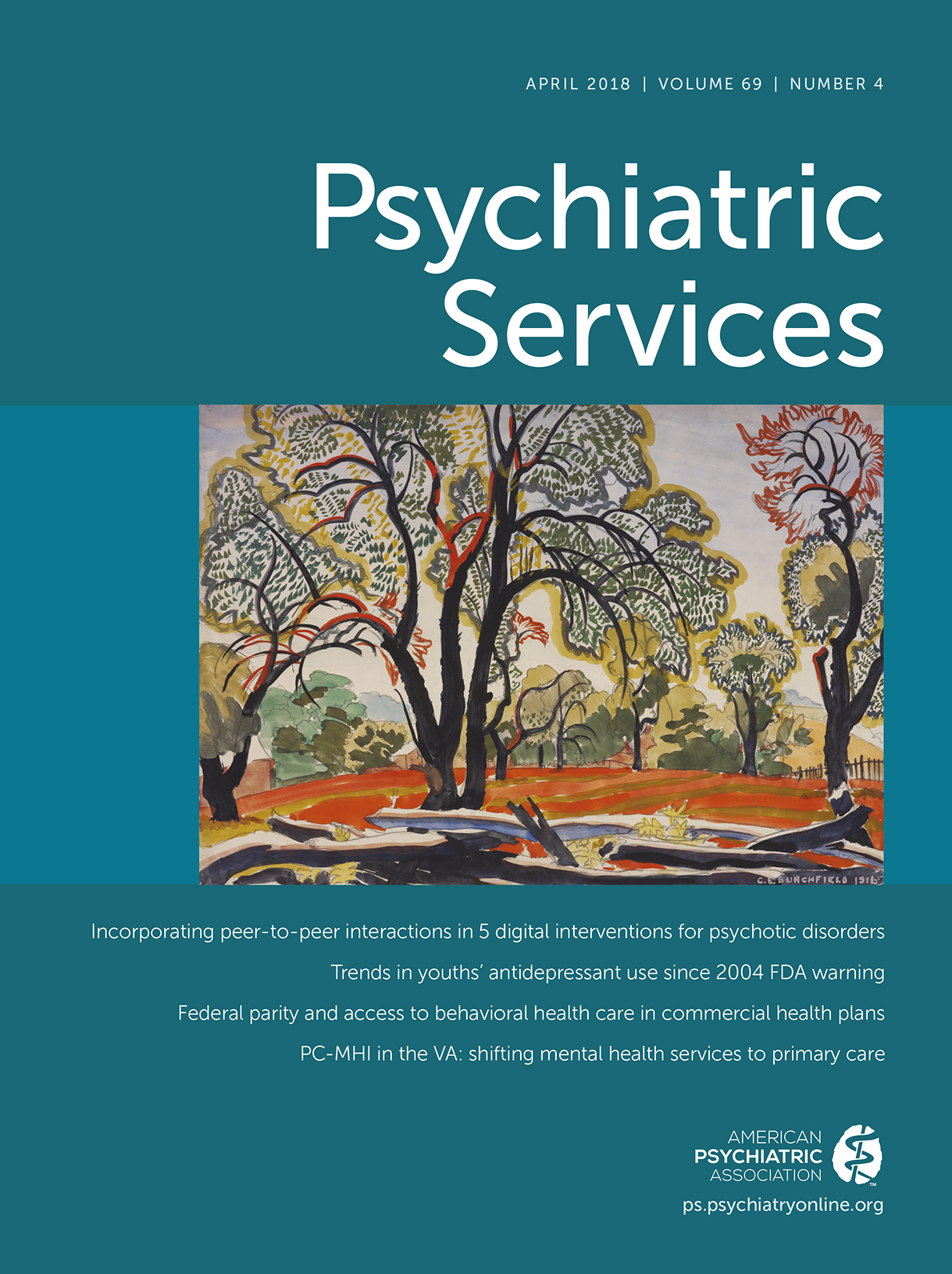TO THE EDITOR: In an Open Forum, Corrigan (
1) discusses limitations of efforts to promote mental health literacy. He argues that educational programs may overwhelm by providing too much information and that they are competing in a market already overcrowded with health information. He gives two examples to illustrate these limitations: training of primary care providers in mental health and Mental Health First Aid (MHFA) training of the public. However, what he says about MHFA contains several inaccuracies, which we would like to correct.
Corrigan claims that programs like MHFA may produce “little meaningful change in actual health behavior.” However, there have been many trials evaluating the effects of MHFA training. A meta-analysis of these trials showed that “MHFA increases participants’ knowledge regarding mental health, decreases their negative attitudes, and increases supportive behaviours toward individuals with mental health problems” (
2).
Corrigan also claims that MHFA students spend “hours of training on the DSM.” That is incorrect. A breakdown of the time spent on various topics in the most recent edition of the 12-hour Australian course (which is the parent MHFA course internationally) shows that only 8% of time is spent on recognizing mental health problems and on the prevalence of and risk factors for disorders. Recognition that a person has a mental health problem is a prerequisite to provide support to the person. The bulk of the course teaches skills to support people developing mental health problems or experiencing mental health crises.
Corrigan is critical of the MHFA action plan, which he claims “may lack behavioral simplicity—its action steps are vague, and implementation is potentially long and demanding.” The plan he cites is out of date, coming from the first edition of the course. The current plan is to approach the person, assess, and assist with any crisis; listen and communicate nonjudgmentally; give support and information; encourage the person to get appropriate professional help; and encourage other supports (
3).
This action plan is the result of many years of research to develop MHFA guidelines by using expert consensus of international panels of mental health professionals, consumers, and caregivers (
4). Any lack of “behavioral simplicity” is because both professionals and people with lived experience want these details taught.
Corrigan argues for “incorporating people with lived experience in the curriculum as partners.” This is done in MHFA through videos of consumers talking about what it is like to experience various types of mental health problems. Also, many of the accredited MHFA instructors have lived experience of mental illness.
If it were true that MHFA is overwhelming in its content and with limited effects, one might wonder why so many people want the training. Having started in a small way in Australia in 2000, MHFA training is now available in more than 20 countries, and more than two million people have been trained. In Australia, over 2% of the population has been trained (
www.mhfa.com.au). The course has the potential to produce widespread improvements in how people with mental health problems are treated by others in the community.

